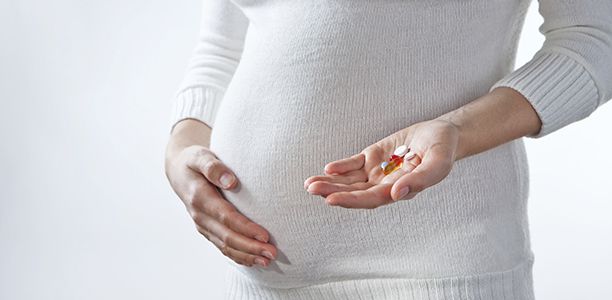Antidepressant medications taken by pregnant women are associated with increased rates of preterm birth. This finding reinforces the notion that antidepressants should not be used by pregnant women in the absence of a clear need that cannot be met through alternative approaches, say researchers from Brigham and Women’s Hospital, Vanderbilt University, MetroWest Medical Center and Tufts Medical Center.
“Preterm birth is a major clinical problem throughout the world and rates have been increasing over the past two decades. At the same time, rates of antidepressant use during pregnancy have increased approximately four-fold,” says lead author Krista Huybrechts, MS PhD, from the Division of Pharmacoepidemiology and Pharmacoeconomics at Brigham and Women’s Hospital and Harvard Medical School. “Therefore it is essential to determine what effects these medications have on pregnancy.”
Huybrechts and colleagues conducted a systematic review and meta-analysis of published studies that evaluated women who took antidepressants during pregnancy and had information on gestational age at birth. The results appear online in the journal PLOS ONE.
“We studied 41 papers on this topic and found that the available scientific evidence is becoming clearer that antidepressant use in pregnancy is associated with preterm birth,” says senior author Adam Urato, MD, a Maternal-Fetal Medicine specialist at Tufts Medical Center and MetroWest Medical Center. “The complication of preterm birth did not appear to be due to the maternal depression but rather it appears likely to be a medication effect.”
“Several of the studies in this review controlled for maternal depression and these studies continued to show increased rates of preterm birth in the antidepressant exposed pregnancies,” adds Reesha Shah Sanghani MD, MPH, from Vanderbilt University.
“It is important to keep in mind, however, that the issue of treatment of depression during pregnancy is complex and that there are many factors to consider. Pregnant women and their providers need to weigh many issues,” says Urato. “It is crucial, though, that the public gets accurate information on this topic.”
Rates of preterm birth have been increasing over the past two decades and it is a major public health concern. Children born preterm have higher infant mortality rates than full-term babies and surviving infants are at increased risk of health problems ranging from neurodevelopmental disabilities such as cerebral palsy and intellectual delays to other chronic health problems like asthma. Costs to society have been estimated to be as high as $26.2 billion per year in the US.
Of the 41 studies which the authors reviewed, the majority showed increased rates of preterm birth in patients taking antidepressants. The association was strongest with use in the third trimester. There was no evidence of a beneficial effect or reduction in preterm birth with antidepressant use.
“Preterm birth is the leading cause of infant death and it is also a major contributor to both short and long-term illness,” says Urato. “While very preterm infants have the highest risk, we now know that even later preterm birth is associated with significant increases in neonatal morbidity and mortality.”
“Pregnant women with depression need proper treatment and our results should not be seen as an argument to ignore depression in these patients,” says Huybrechts. “These drugs may be necessary in some pregnant women with severe depression in whom other approaches are inadequate. However, for many others, non-drug treatments, such as psychotherapy, will help, and aren’t associated with complications like preterm birth.”
(Source: Tufts Medical Center, PLOS ONE)










